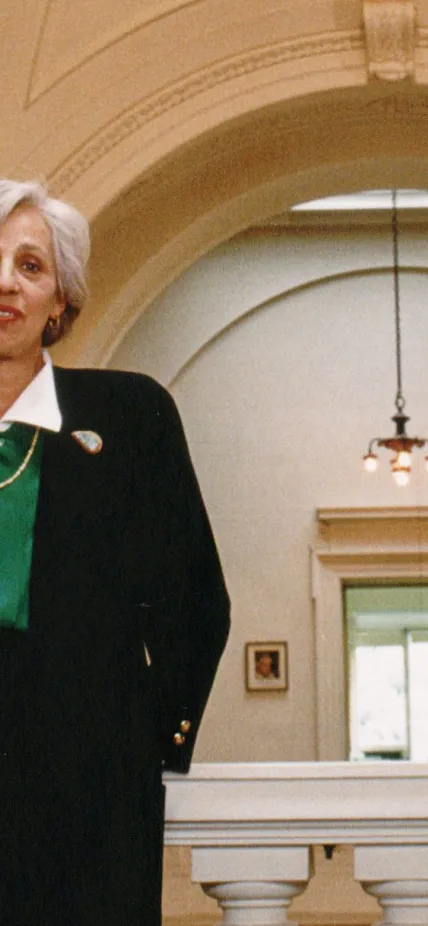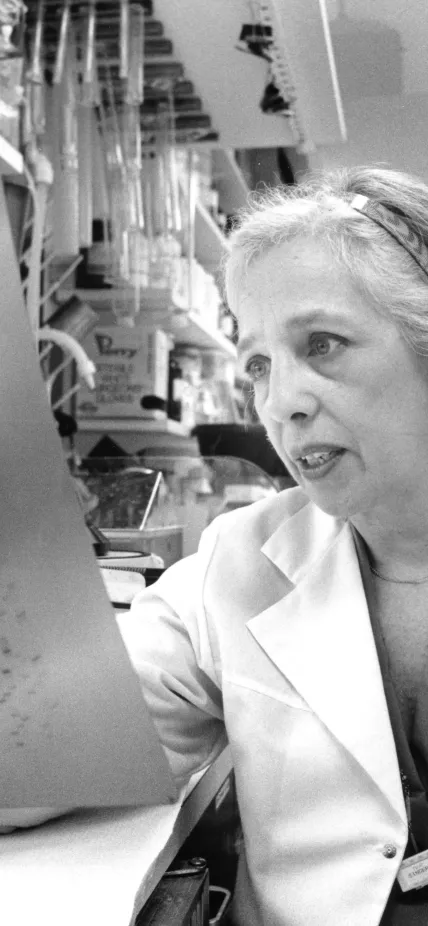The late Carnegie Science President Maxine Singer’s influence continues to ripple outward through the research enterprise, shaping current efforts to promote inclusivity in STEM education, improve the postdoctoral experience, and discuss ethical considerations in science.
Singer, who died in July at the age of 93, left a tremendous scientific legacy that spans from her own significant contributions to nucleic acid research to her recognition of global ecology as a distinct field to her construction of the twin 6.5-meter Magellan telescopes Carnegie Science’s Las Campanas Observatory in Chile.
About 100 world-renowned scientists and leading educators gathered to celebrate Singer’s life and legacy on December 14 during an all-day symposium organized by Carnegie Science and the Singer family. The program featured moving tributes to Singer’s groundbreaking career, as well as reports on current and soon-to-launch programs that were inspired by her efforts—including the launch of a new fund to support postdoctoral research in Singer’s honor.
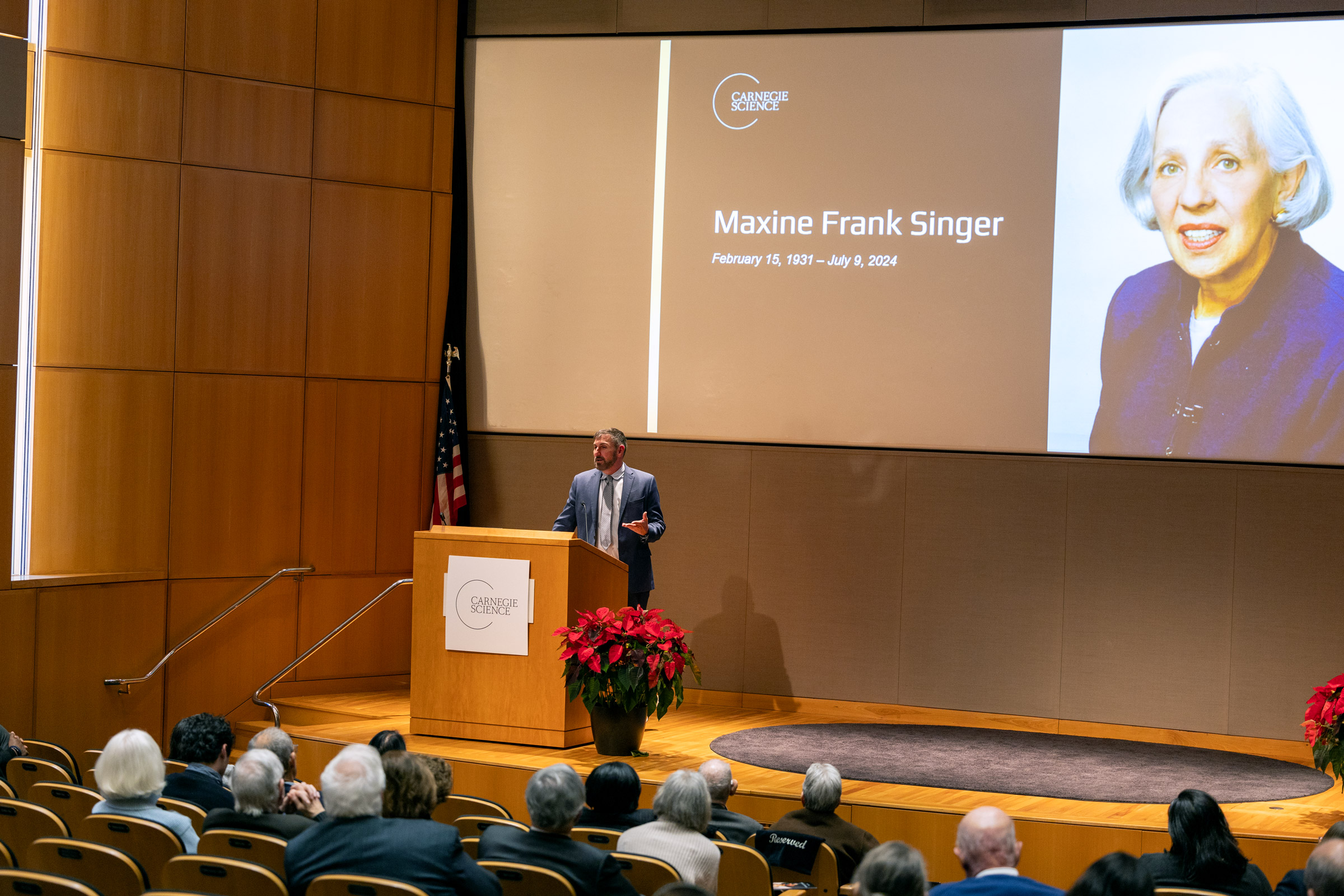
“I certainly wouldn’t be up here if it wasn’t for Maxine Singer,” said Carnegie President John Mulchaey, noting that in addition to hiring him as a Staff Scientist at the Carnegie Science Observatories in 1999, she was responsible for the Magellan telescopes on which he completed his entire research program.
Mulchaey added that when he was first named to his former role of Observatories Director in 2015, Singer both mentored him through early leadership challenges and inspired his commitment to expanding outreach and STEM education initiatives in Pasadena.
Throughout the symposium, multiple speakers praised Singer’s vision and tenacity in bringing the Magellan telescopes to fruition and the importance of the astronomical research that these facilities have enabled over the last quarter century.
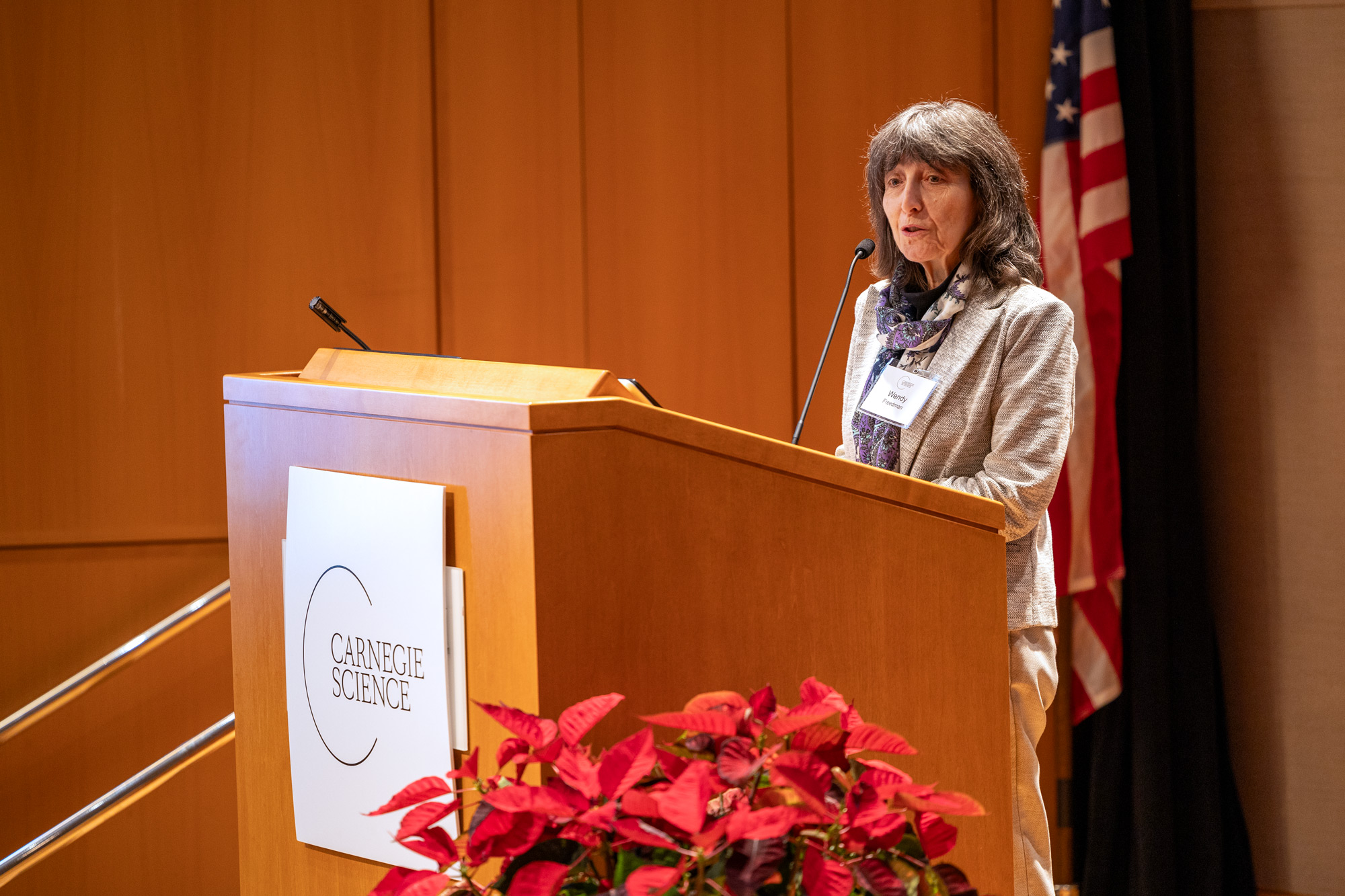
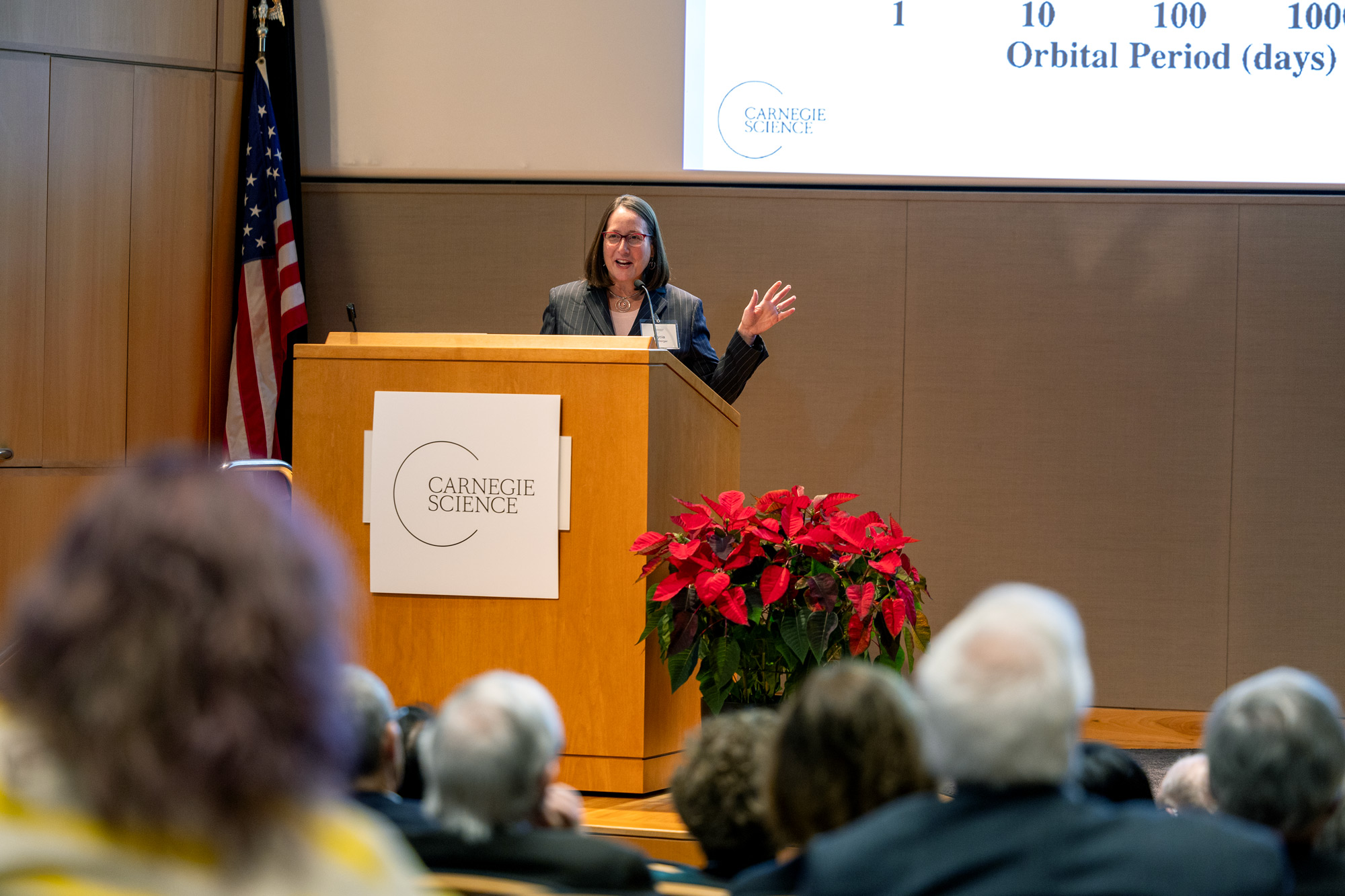
“When she assumed the presidency, those of us at the Observatories were very unsure of how a biologist would view astronomy and whether she would understand that we needed, in order to stay relevant, we would need a bigger telescope,” recollected Wendy Freedman, former Carnegie Observatories Director now the John and Marion Sullivan University Professor in Astronomy and Astrophysics at the University of Chicago.
Carnegie Staff Scientist Alycia Weinberger elucidated examples of how Singer’s efforts furthered astronomical capabilities and helped enable breakthrough science in the then-emerging field of exoplanet research.
“It took tremendous prescience in 2000 and 2001 to start hiring people interested in exoplanets when there were hardly any of them,” Weinberger said, praising Singer’s instincts in listening to Carnegie’s scientists about future research areas in which the institution would want to invest.
Singer’s contributions to the scientific enterprise expanded far beyond her visionary presidency of Carnegie Science, however. As several prominent biologists attested, her own breakthrough research on nucleic acids enhanced our knowledge about heredity and changed our understanding of genetic disease. National Medal of Science and Lasker Prize laureate Mary-Claire King presented about Singer’s discovery that a DNA sequence called LINE-1, which is repeated and interspersed throughout the human genome and capable of “jumping” around within a chromosome, causing mutations.


Singer’s role in establishing molecular biology as a new and vital research field led directly to another signature element of her illustrious career. As this new technology developed, Singer realized the importance of establishing ethical guidelines for the entire scientific community.
She demonstrated leadership in this arena throughout her career, but never with greater impact than at the legendary Asilomar Conference, which she organized with frequent collaborator Paul Berg. This meeting established guardrails to ensure the safe use of genetic engineering capabilities made possible by recombinant DNA technology.
“She was a primary model to the world of why science is done or should be done and what its place is in society,” said Rush Holt, the former chief executive officer of the American Association for the Advancement of Science, in a prepared statement. “This understanding was apparent in all she did. At Asilomar she was declaring in effect that research activities should be guided not to maximize the sense of progress and accomplishment that the scientific community feels, but rather to enhance the well-being of ordinary citizens.”
Added Nobel Prize laureate David Baltimore: “The world owes Maxine Singer a debt for having left the comfortable confines of her laboratory to grapple with the multiple views of how we could safely bring recombinant DNA methods into our laboratories.”
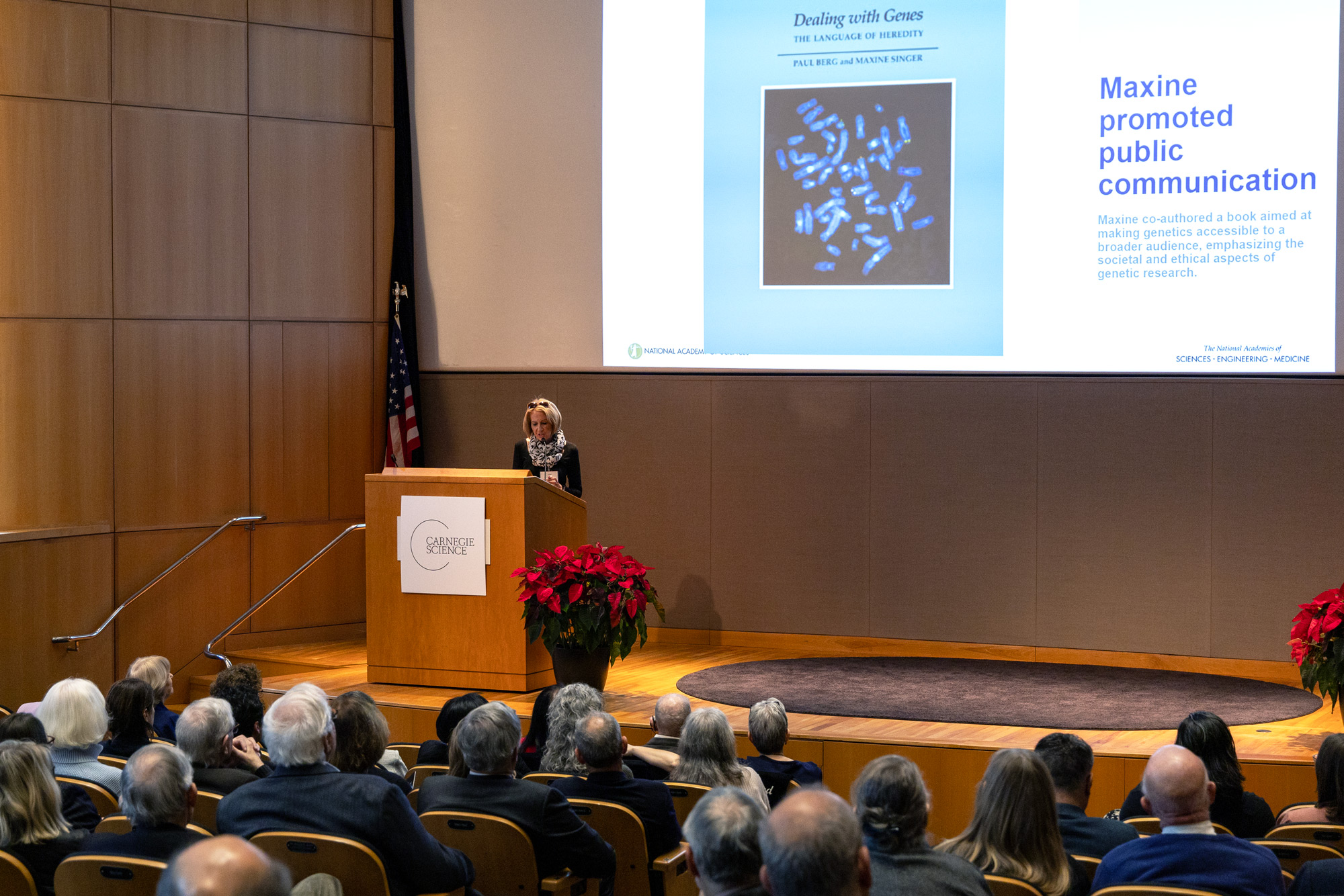
President of the National Academy of Sciences Marcia McNutt noted that the Asilomar Conference still serves as a blueprint for many of her organization’s efforts. This is one of many ways Singer’s work is still shaping the academy’s work. McNutt went on to detail several NAS programs that build off of Singer’s contributions, including programs to improve the postdoctoral experience nationwide, to increase opportunities for women in STEM fields, and to make science accessible to the general public through the use of plain language and educational programming.
Singer’s devotion to science and math education was a major component of the symposium, which featured testimonials from master teachers who were part of the highly successful D.C. branch of the Simons Foundation’s Math for America program, as well as details about outreach programs Singer inspired at her undergraduate alma mater, Swarthmore College.
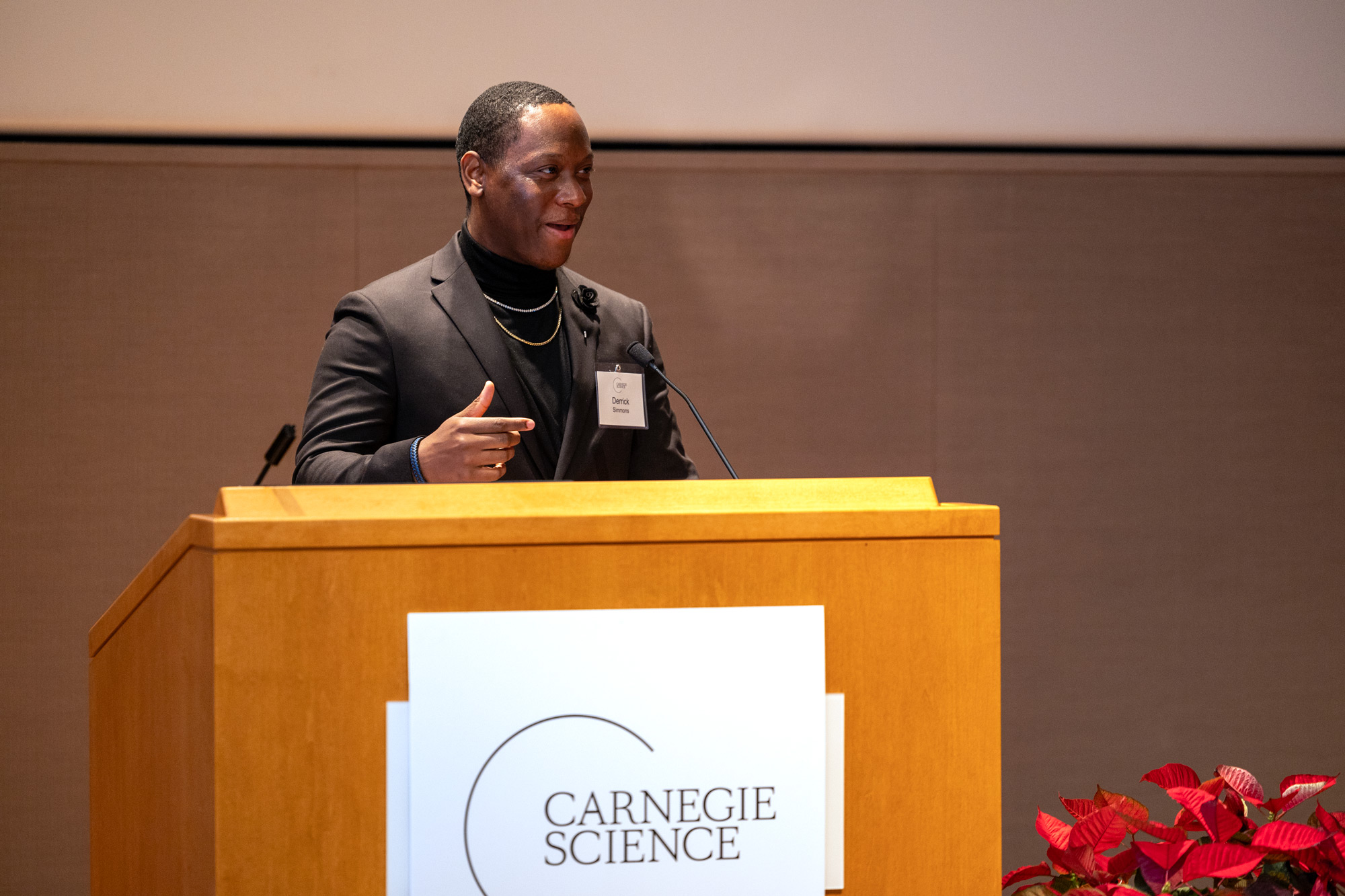
“Because of Maxine’s leadership, math teachers across the District look different,” said Derrick Simmons, an MfA D.C. alumnus and teacher at McKinley Technology High School. “We weren’t just individuals, we were a team and Maxine was our coach. She was our biggest believer and our champion.”
Simons Foundation President David Spergel, a Carnegie Science Trustee, detailed a new initiative that will build on the successes of MfA D.C. and the New York and Los Angeles branches of the program. The National Science Foundation’s STEM Teacher Corps will fund eight to 10 regional alliances for up to five years.
“This was modeled on the MFA program,” Spergel said. “The success that Maxine’s work enabled is going to live on in this program.”
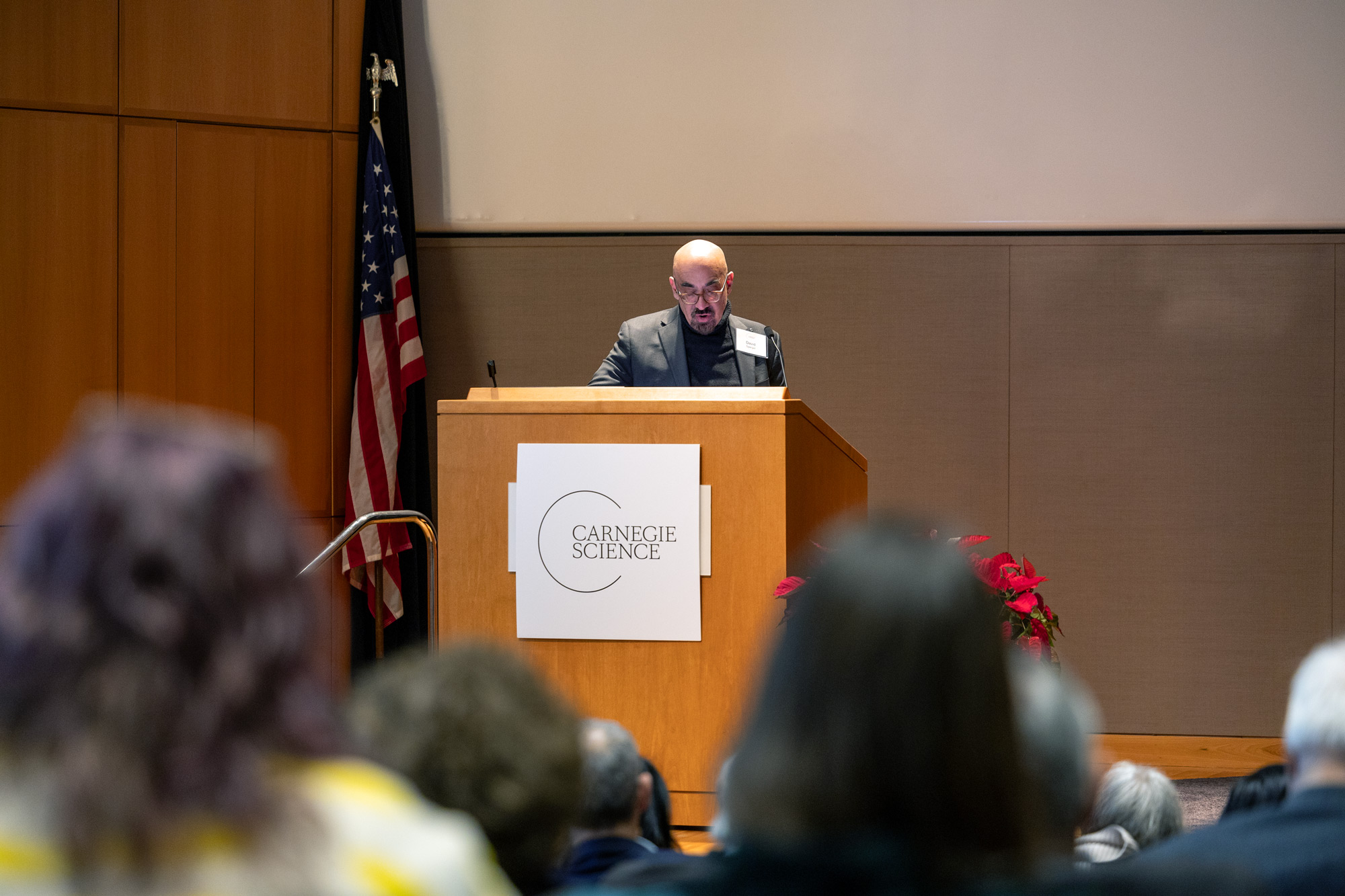
In addition to Singer’s crucial role in MfA D.C., she also founded the Carnegie Academy for Science Education, which has reached thousands of students and teachers in the nation’s capital, and launched the institution’s popular Capital Science Evenings public lecture series.
She was a tireless advocate for access to research opportunities at all levels—from the curious children who participated in her First Light Saturday Science School to the early career scientists who passed through Carnegie Science's postdoctoral fellowship programs under her watch to the daily example she provided of how to maintain work-life balance as a prominent woman scientist with a family.
“Maxine was an inspiration to me both personally and professionally,” said Freedman, describing Singer as “an active, first-rate scientist, a bold and experienced and talented leader, and a mother, a wife and a grandmother. And I didn’t know any other women who were all of those things” when Singer arrived at Carnegie in 1988.
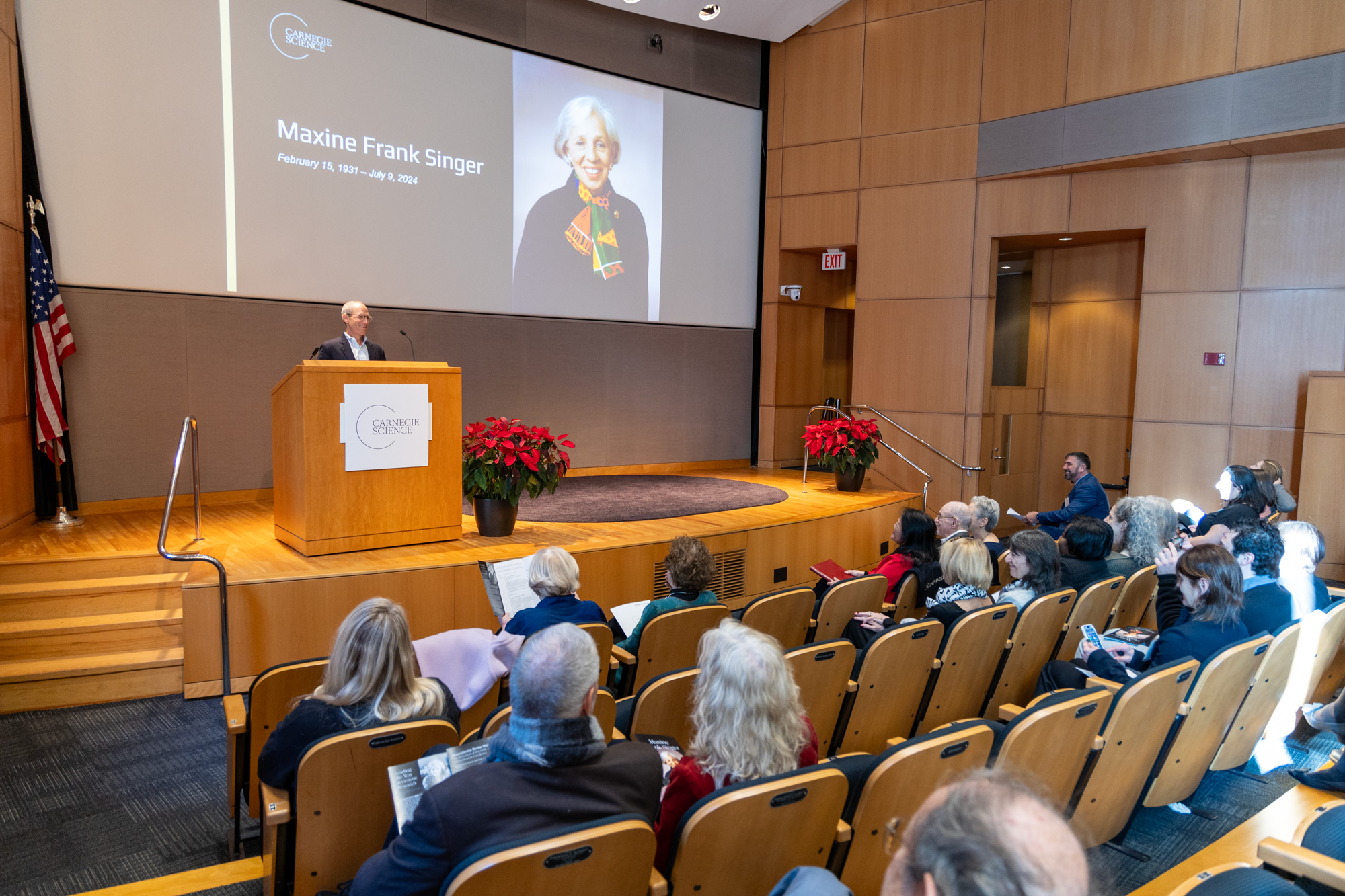
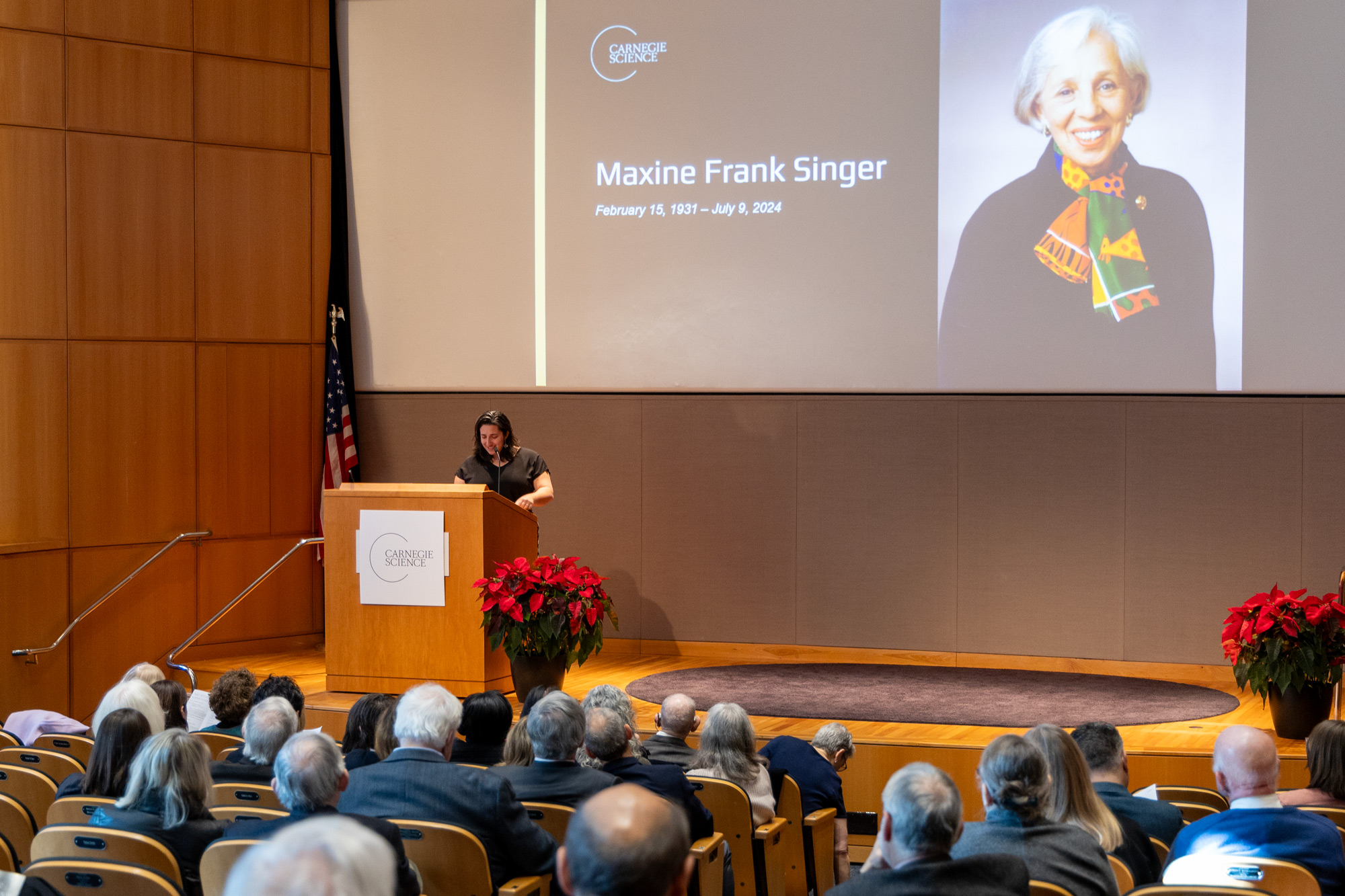
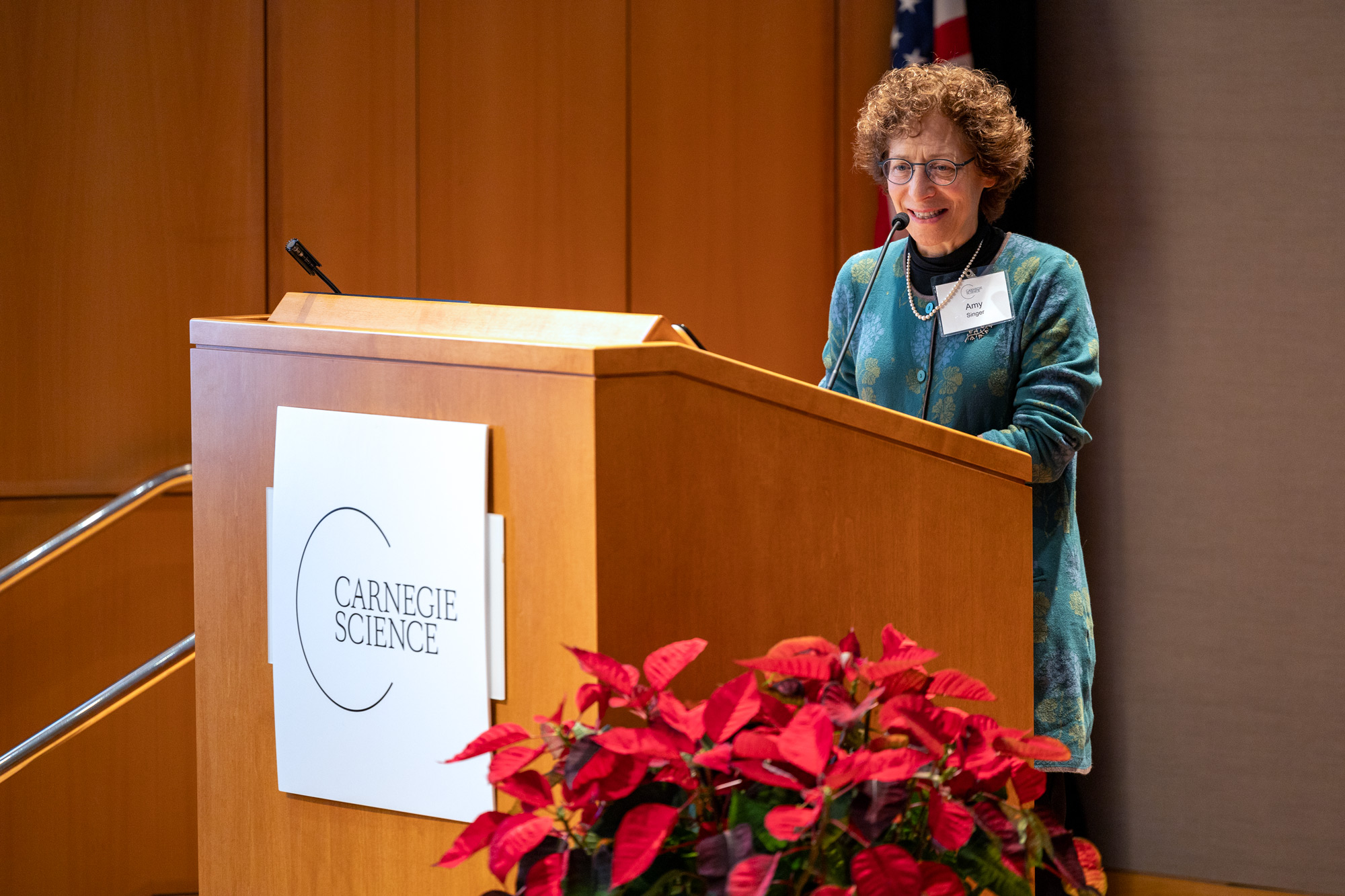
Singer’s children and grandchildren shared their own stories about her encouragement of their curiosity and passions, as well as her lack of judgment about their choices.
“As a kid, I drank up my mom’s explanations of why coral reefs look different at night, why puffer fish puff, and why penicillin sometimes stops working. … On weekends I would sometimes go to work with her, sorting glassware while she checked on assimilation counts and her gels.” said son David Singer. “So, when you think of her seminal papers and her deft navigation of the stormy weather around the recombinant DNA revolution and her dogged advocacy for basic science and young scientists, keep in mind she did all this with four kids underfoot.”
Maxine F. Singer Postdoctoral
Fellowship Fund
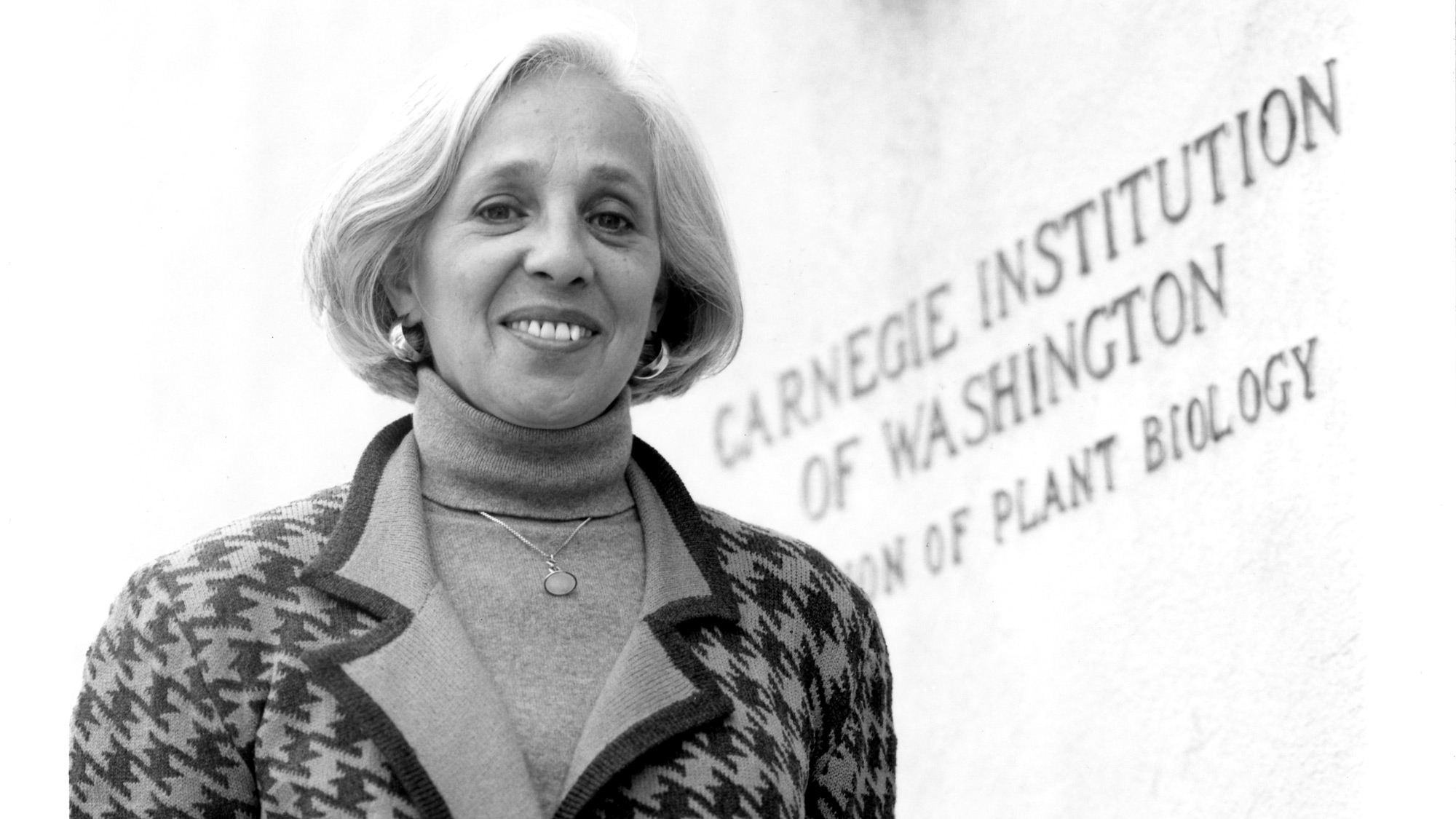
At the conclusion of our memorial program, Carnegie Science and the Singer family were thrilled to announce the Maxine F. Singer Postdoctoral Fellowship Fund, which will support junior scientists throughout the institution.
Singer was devoted to fostering professional growth for early career scientists, and as a result of her dedication, Carnegie Science is one of the most supportive environments for postdocs to launch independent research programs.
If you would like to make a donation to the fund, please reach out to our dedicated Development team at giving@carnegiescience.edu to discuss the details of your gift.
